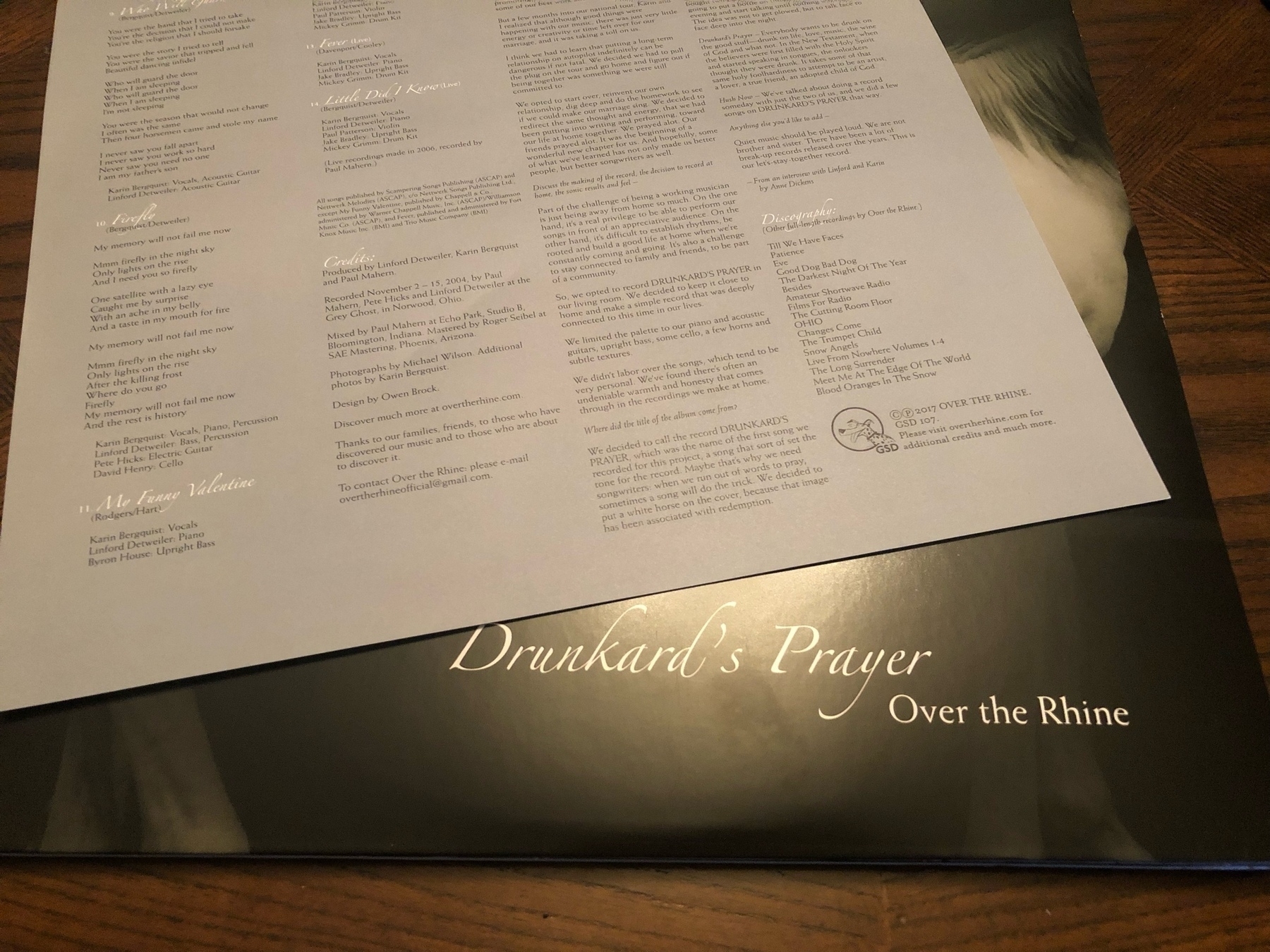So when I heard that Third Man Records had a 7” of “A Glorious Dawn” available, the only decision left to me was priority shipping or media mail.
Now spinning: D-Vine Spirituals. It’s a new release of recordings of Black gospel groups from the seventies and if any of those words light you up, you’ll love this album. It’s also available digitally, of course, in all the usual places.
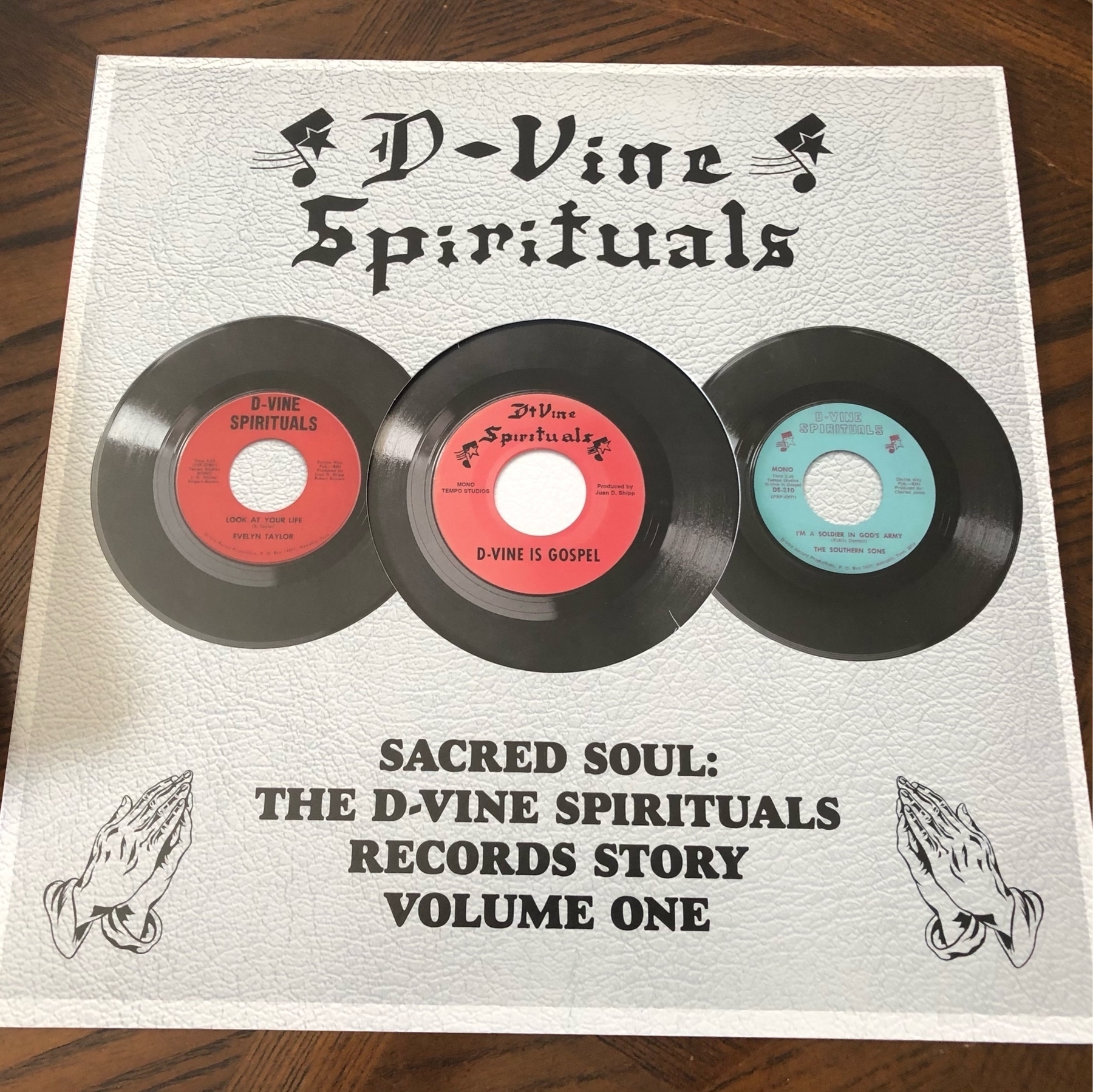
From The Revenge of Analog by David Sax, on the story of digital progress:
Our world would be successively rendered into bits and bytes, one program at a time, until we reached a state of digital utopia, or the Terminators came for us.
The Revenge of Analog presents a different narrative, however. It shows that the progress of technological innovation isn’t a story of a slow match from good to better to best; it’s a series of trials that helps us understand who we are and how we operate.
This brings to mind an analogy to evolution by natural selection. It’s often misunderstood that evolution represents a sort of upward progress to perfection. The reality is that it is progress toward reproductive fitness, integrating whatever allows a species to propagate. An evolved species is not ideal in every way. Rather, in some ways it may be worse off than its earlier iterations. (See Breath by James Nestor for examples of how our evolutionary adaptations have actually devolved our breathing functions.)
Technology evolves, but its latest iteration may not be ideal in every way - may be worse in some important ways. This is where human judgement about the purposes of life and technology must engage, refusing to allow ourselves and our world to become slaves to our technology.
Plans for the next issue involve cardboard and spray paint.
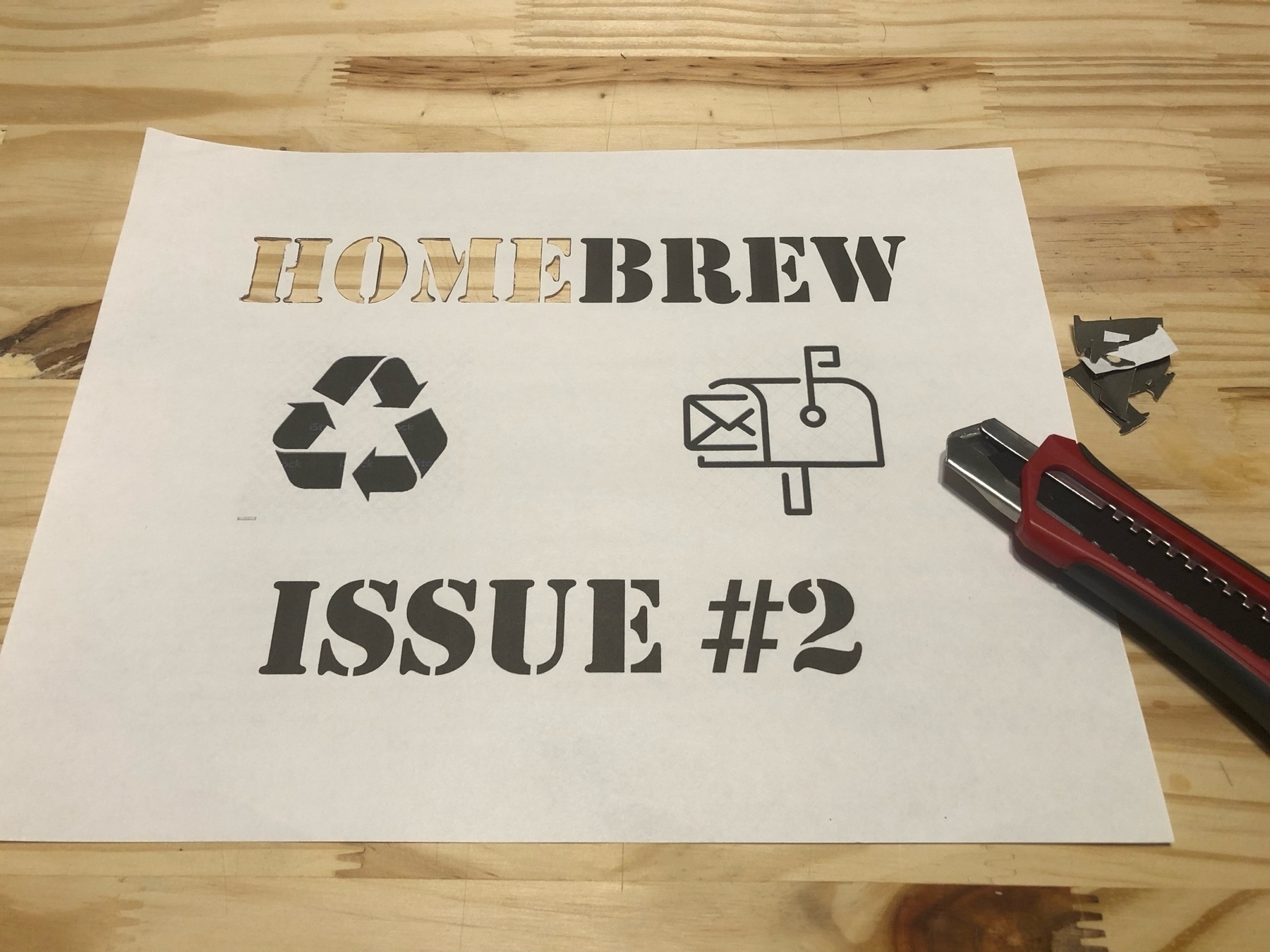
I received my order from Half Letter Press, which focuses on booklets and independent publishing. Check them out, lots of interesting stuff there.
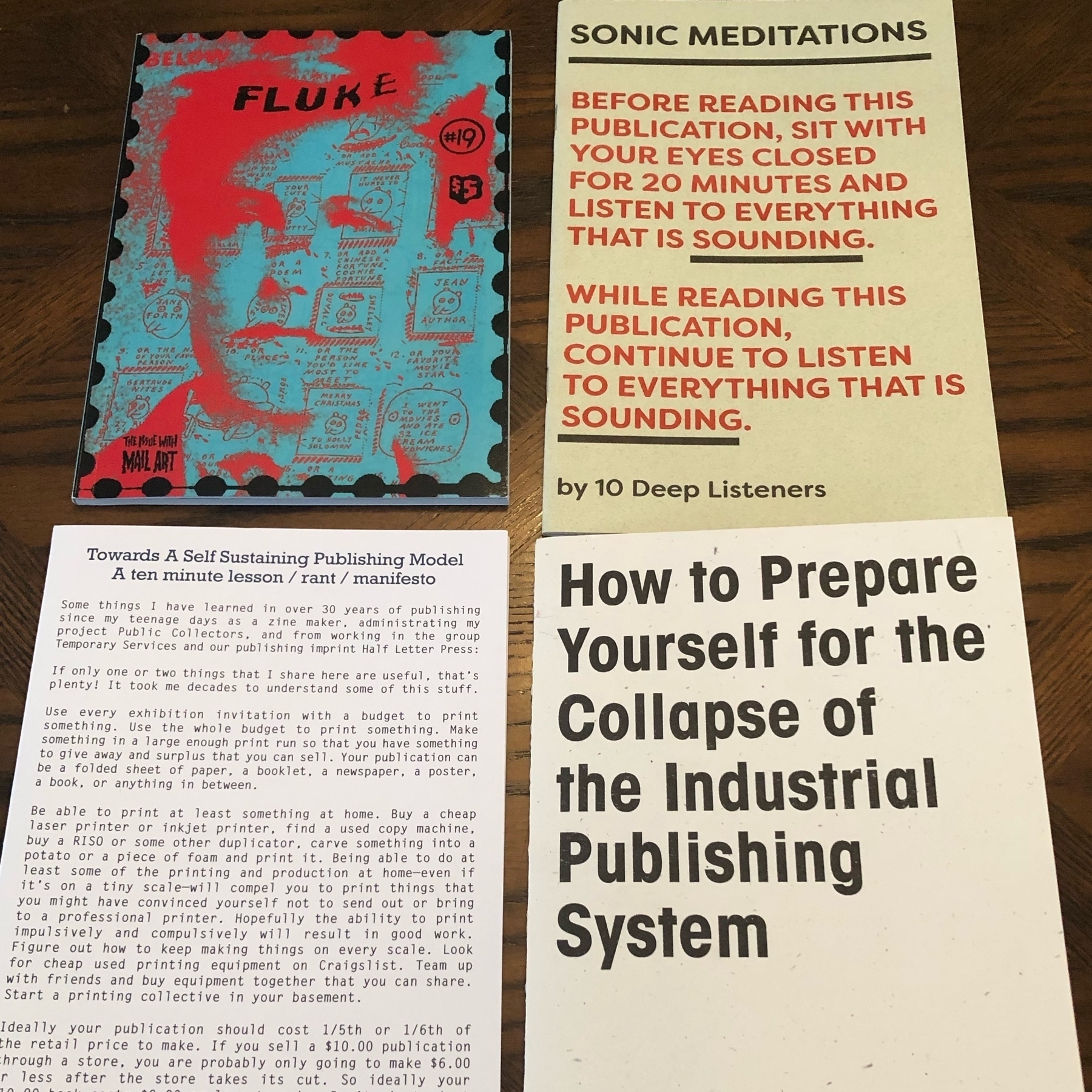
Rob Sheffield says the CD revival is here. I’m going to stick with collecting records for now, but this makes a good argument for the CD. “Look, CDs will never be as sexy as vinyl albums. I get that. … Really, there’s only one thing CDs have ever done right, which is make music. They get the job done, which is why they’re still around.”
I’ve set up a page for a zine I recently completed. It’s a collection of some of my poetry from the last few years and it was a lot of fun to create. Lots of hunting for public domain images and futzing around with my copier. My favorite part was creating the winter haiku page. I had already written the haiku so I googled phrases so that I could print the text and then cut it up ransom note style. In any case, head over there for a pdf download and subscription information.
In response to a recent post I wrote mentioning zines, @lewism pointed me to an episode of Rolf Potts’ podcast in which he discusses mixtapes, those homebrews of (chiefly) the eighties. I made a few mixtapes myself in the old days but, being a fundamentalist child, they were mainly of southern gospel quartets, that is to say, lame in the extreme.
(Explaining all this to our daughter Darcy, who was born after we left fundamentalism, I went down a quartet music rabbit hole on YouTube. Eventually she fled the living room. I’m sure our YouTube recommendation algorithms are thoroughly confused and will take some time to recover.)
I also watched the documentary discussed by Rolf Potts, Cassette: A Documentary Mixtape.

The documentary outlines the history of the cassette and the revolutionary impact it had. For the first time, it was possible to record at home: songs from the radio or other cassettes, found sound, and - crucially - your own music. And, as you can see in the documentary, this homebrew tradition continues into the present day.
Among young aficionados of cassettes, the attraction is surely the ability to record music at very low cost, together with the hipster weirdness of using obsolete technologies. Among older cassette lovers, there is likely the additional factor of nostalgia. I’ve seen a similar dynamic in myself as I’ve been listening to records since Christmas. Records - especially older ones - definitely don’t have the clean sound of digital music. There are flaws that cause them to skip and hiss. As a physical medium, a record carries time within itself. On the other hand, each time digital music is played it is an experience ex nihilo, as if you stand with the angels at the moment of creation. That is not nothing - and is definitely an argument in favor of digital music.
Nevertheless, records and cassettes have an element of wabi-sabi to them. (Important caveat: I have no expertise on this subject and it is not from my culture. Whatever I say here should be seen as provisional and open to correction.) Some attempts at a definition of wabi-sabi:
- The honoring of “imperfection, brokenness, and decay.” The belief that “a thing gets more beautiful as it gets scarred from use and imbibed with its own story.” (David Duchemin, Start Ugly)
- The “acceptance of transience, nature and melancholy, favouring the imperfect and incomplete in everything” (Lilly Crossley-Baxter, “Japan’s unusual way to view the world”)
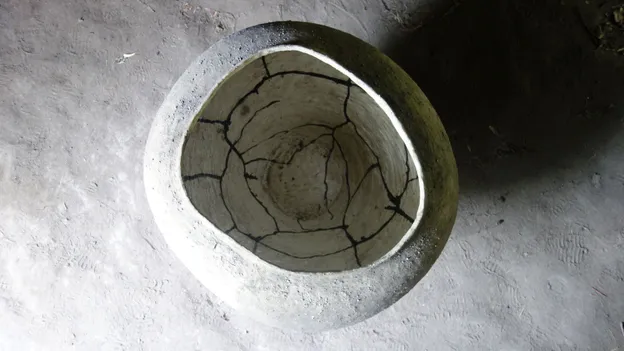 Sculpture by Kazunori Hamana; photo by Lily Crossley-Baxter
Sculpture by Kazunori Hamana; photo by Lily Crossley-Baxter
- The “beauty in the imperfections found as all things, in a constant state of flux, evolve from nothing and devolve back to nothing.” (Andrew Juniper, Wabi Sabi: The Japanese Art of Impermanence)
- “The beauty of the withered, weathered, tarnished, scarred, intimate, coarse, earthly, evanescent, tentative, ephemeral.” (Crispin Sartwell, Six Names of Beauty)
Over time, physical mediums for music acquire imperfections and scars that speak of their history - even if we don’t know that history ourselves. When I am listening to an old record, I imagine previous owners sitting in their living rooms, laying in their bedrooms, doing any number of things while listening to this very record. What was going on in the life of that person when they first pulled the record from its sleeve? Was this piece of vinyl important to them?
I am not saying anything as simplistic as “physical good, digital bad.” What I am saying is that perhaps a digital self, a digital life, experience mediated by digital technology, is too thin to be fully satisfactory. Perhaps we have over-emphasized experience via the mind, forgetting that we are bodies and that human life is intimately connected to the wear and tear of physicality.
Other links:
- There are a lot of good links on that Rolf Potts podcast page. Next up for me is to watch High Fidelity.
- Stanford Encyclopedia of Philosophy entry on Japanese aesthetics
- “Japanese Aesthetics, Wabi-Sabi, and the Tea Ceremony” (pdf) by Nancy Walkup
🎵 Now spinning. I first heard Robert Finley on the Colbert show a few days ago and fell in love with his wonderful voice and grandpa dancing. Bonus: this album was produced by Dan Auerbach of the Black Keys, so that’s a shot of extra confidence in its quality.
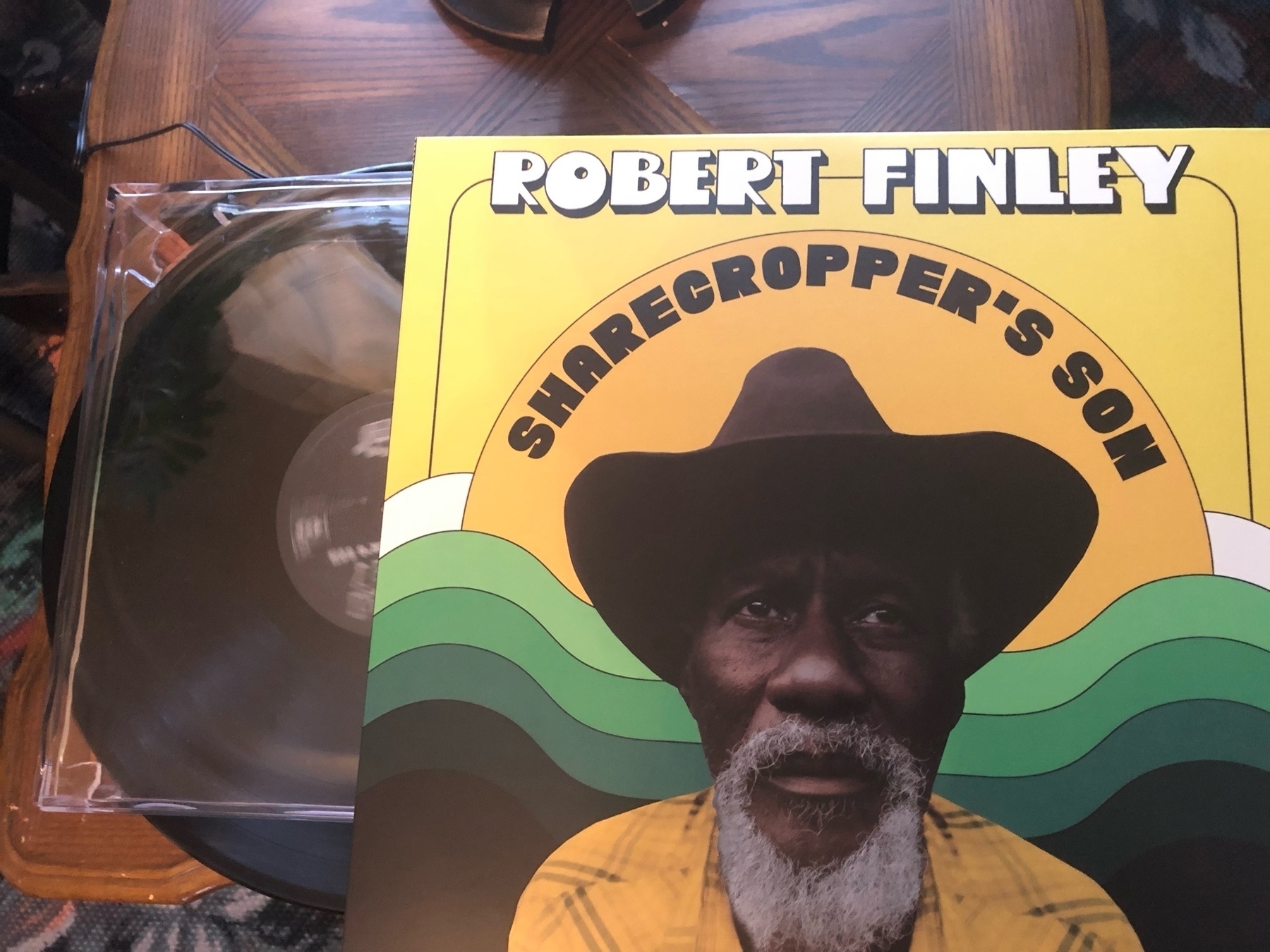
Today I found a copy of Over the Rhine’s “let’s stay together” record. I’m thankful both that I found it and that they stayed together.
